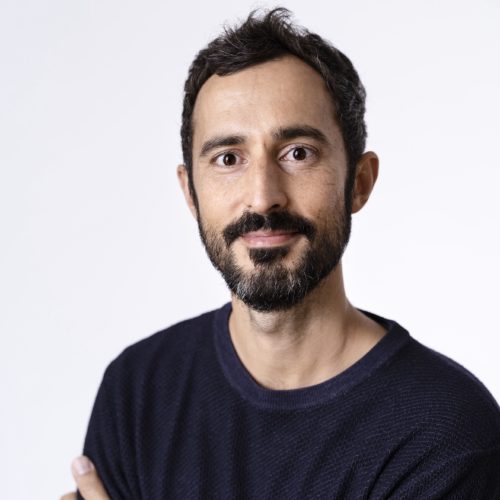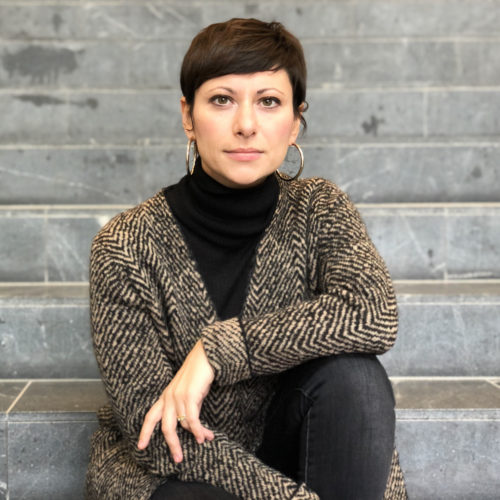I: Alternatives to Capitalism
Network I accepts 1,000-word abstracts (deadline December 16 2024) for the 2025 SASE Conference in Montreal (9-12 July 2025).
Network I will also organize two virtual sessions during the virtual conference days (1-3 July 2025).
Submissions can be made through the usual process, details here: https://sase.org/event/2025-montreal/#submission-guidelines
Call for papers
The COVID-19 pandemic and ensuing global economic recession of unprecedented depth is a once in a generation opportunity to challenge capitalism and transition to a more equitable, democratic, solidaristic and sustainable socio-economic system. Indeed, the present situation has revitalized public and academic debates about the future of capitalism and has demonstrated the urgent need to envision and enact alternatives that can help rebalance the economy and tackle the multiple intertwined crises that societies are currently facing: high and rising inequality of income and power, eroding democracy and citizen’s rights, human-induced climate change and environmental destruction.
The broad aim of this research network is to advance the international, comparative and interdisciplinary study of capitalism and its alternatives, and thereby contribute to debates on the future of capitalism, the commons, prefigurative politics, social movements and collective action, real utopias, radical politics, and heterodox economic thinking.
The main area of enquiry is to explore how long-standing and emerging social actors are challenging and supplanting conventional capitalistic modes of production, consumption, and reproduction by engaging in collective action of various sorts. We are especially interested in research that helps us to understand: Who are the emancipatory subjects that are embodying alternatives to capitalism? What are the emancipatory strategies enacted by these subjects and to what extent are they viable, achievable, and scalable? And in what ways does the State and the market co-opt, repress, or facilitate alternatives in the socio-economic, political, and geographic contexts in which they are embedded?
Our past annual gatherings in Berkeley (2016), Lyon (2017), Kyoto (2018), New York (2019), and more recently online (2020, 2021) have given rise to a new book series titled ‘Alternatives to Capitalism in the 21st Century’ and published by Bristol University Press.
The network encourages interdisciplinary dialogue between scholars form a variety of disciplines (e.g., sociology, social theory, social movement studies, political economy, anthropology, industrial relations, cultural studies) that are conducting theoretical and empirical research on a range of topics such as:
- Contemporary capitalism, its crises and alternatives
- Social change, transitions to post-capitalist societies and low-carbon economies
- Resilience and resistance to capitalist expropriation and exploitation
- Radical/deep ecology, eco-feminism, eco-socialism and degrowth
- Political and ethical consumerism
- Ecovillages, communes and intentional communities, radical lifestyles
- Decolonial and feminist economic and social practices
- Worker/producer/consumer cooperatives, economic democracy, and labour struggles
- Direct democracy, radical municipalism and the commons
- Democratic socialism and socialism in the 21st century
- Alternatives to shareholder capitalism
- Alternative metrics and values in capitalist societies (e.g., ESG impact, new taxonomies and benchmarks)
- Critiques of “green capitalism” and “conscious capitalism”
- Alternative and complementary currencies
- Alternatives in/to creative industries
- Transformative social innovation, social and solidarity economy
- Alternative and place-based food and energy networks
- Anti-capitalist trade unions, political parties, and social movements
- Critical pedagogy for a just ecological transition
- Innovative methods and epistemologies for interpreting alternatives to capitalism

University of Bristol
Torsten Geelan
Dr. Torsten Geelan is a sociologist interested in trade union movements, media counter-power, and just transitions to sustainable economies and societies. His research is comparative and interdisciplinary, drawing on insights from industrial relations, environmental sociology, environmental labour studies, critical social theory, and media and communication studies. He is currently a Lecturer (Assistant Professor) in Economic Sociology and the Future of Work at the University of Bristol. Prior to joining Bristol, he worked as a Marie Skłodowska-Curie Fellow at the University of Copenhagen, Department of Sociology, and as a Lecturer in Sociology of Work and Employment at the University of Leicester Business School. He holds an MPhil and PhD in Sociology from the University of Cambridge and a BA in Economics and Social Studies from the University of Manchester.
Torsten’s EU-funded Marie Skłodowska-Curie project Eco-Unions (2021-2024) explores how the trade union movement is navigating the so-called ‘jobs versus environment’ dilemma. The project focuses on two new labor-environmental coalitions in Denmark and the UK, and analyses the environmental discourses being produced and circulated across the interconnected arenas of union strategizing, climate policy-making and public debate. He’s particularly interested in understanding whether these discourses are able to challenge the dominance and pervasiveness of capitalist realism. During the project, he held a position as a Visiting Fellow at the LSE’s world-leading Department of Media and Communications in London. In the run-up to Eco-Unions, he led a British Academy/Leverhulme Small Research Grant on the role of Twitter in organising the 2018-2020 UK higher education strike.
He is currently co-founder and co-chair of the Alternatives to Capitalism Research Network at the Society for the Advancement of Socio-Economics (SASE) and co-editor of the Bristol University Press book series Alternatives to Capitalism in the 21stCentury. He also co-edited the Palgrave Macmillan volume From Financial Crisis to Social Change: Towards Alternative Horizons (2018; 2020 paperback) and has worked as a columnist for the Danish newspaper Dagbladet Information.
As a public speaker, Torsten is regularly invited to give talks to research centres, NGOs such as Rethinking Economics, and the trade union movement in England and Denmark.

University College London
Lara Monticelli
Dr Lara Monticelli is an interdisciplinary scholar, writer and public speaker interested in analysing contemporary capitalism, its crises, and more just and sustainable alternative futures. Her approach draws insights from economic and political sociology, critical social theory, political economy, and the humanities. Prior to joining UCL, she worked as Assistant Professor and Marie Skłodowska-Curie fellow at Copenhagen Business School (CBS) in Denmark. She also held visiting positions at the University of Cambridge, University of Stockholm, and University of Rotterdam (Dutch Research Institute for Transitions, DRIFT).
Her EU-funded research project EcoLabSS (2018-2024), focused on the (re)emergence of community-based, prefigurative social movements (e.g. sustainable communities, eco-villages, transition towns, solidarity networks) as living laboratories experimenting with practices of resilience and resistance to environmental, economic and societal challenges. Lara is especially interested in how these movements re-politicize and re-configure everyday life, thus representing radical attempts to embody a critique to contemporary capitalism and prefigure alternative, sustainable futures. Her most recent edited volume is titled “The Future is Now. An Introduction to Prefigurative Politics” (2022, Bristol University Press).
With Dr Torsten Geelan, she co-chairs the international research network “Alternatives to Capitalism” at the Society for the Advancement of Socio-Economics (SASE) and co-edits the book series “Alternatives to Capitalism in the 21st Century” at Bristol University Press.

